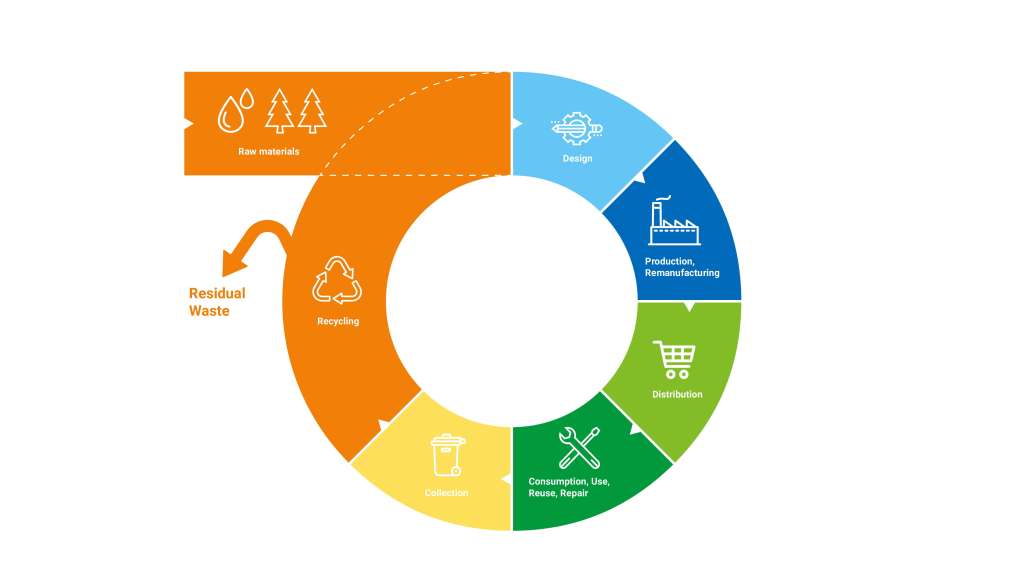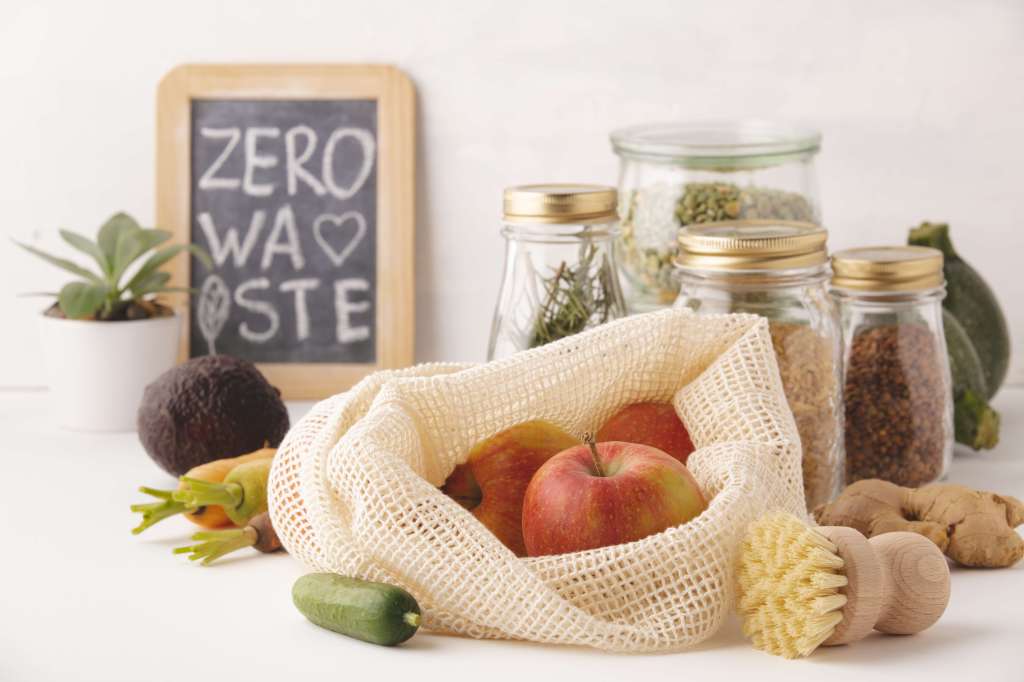OLIO is a food sharing app that connects neighbours with each other and local businesses so that surplus food doesn’t get wasted. By stopping people throwing away food, OLIO hopes to help everyone reduce their impact on the environment.
We caught up with OLIO’s co-founder, Tessa Clarke, to find out why sustainability is important, how they achieve it with their business model, and her tips for small businesses.
From startup to 5 million OLIO members
OLIO launched in July 2015 and today has over five million members, with numbers doubling during the pandemic.
Clarke was brought up on a farm in North Yorkshire so truly knows the value of food and where it comes from. She told us she’s ‘grown up with a pathological hatred of food waste.’
And according to OLIO’s market research, many people agree. They found that a third of people are ‘physically pained by throwing away food’.
That’s where OLIO comes in. People simply share photos of food that might otherwise go to waste on the app and neighbours can come around and pick it up for free.
Clarke said OLIO believes in ‘profit with purpose’ and putting sustainability at the heart of their business model.
But why is sustainability important?
In most developed countries, over half of all food waste takes place in the home and if food waste were a country, it would be the third largest emitter of greenhouse gasses.
Clarke said: “We want one billion OLIOers by 2030. If humanity is to stand any chance whatsoever of living in a 1.5 degree warmed world, then this is what we have to achieve, given the enormous carbon impact of food waste.”
On the issue of why sustainability is so important, Clarke talks of the climate crisis, biodiversity crisis, and resource depletion crisis.
Not only that, Clarke says there’s a ‘whole new generation of consumers – gen Z and millennials – who are recognising that profit and purpose are inextricably linked’.
She adds: “Any business that does not truly embed profit with purpose into its DNA will lose its licence to exist, I’d like to say within the next five years, but certainly within the next 10-20 years.”
Sustainability tips for your business
Clarke thinks a circular model of economics and consumption should be built into every business from the very beginning.
She said: “The end-of-life in any product is baked into the design process at the very beginning of that product. Business models that require reuse and circularity need to become the new norm.”
Here are Clarke’s tips for what businesses of any size can do:
- keep learning about sustainability and environmental issues
- commit to making sustainability a top three priority for your business
- empower every employee to rethink what they’re doing and how they can play a role in embedding sustainability into your business
- include sustainability in your company values, metrics, and core KPIs
- shift the mindset – this is harder for larger businesses, but realise that it’s better to do something than nothing
- recognise it’s a journey – set clear goals and recognise you don’t have to have the answers to everything, but be transparent about the problems and steps you’re taking to solve them

How to communicate your sustainability journey
It’s important to bring your customers, clients, and employees (if you have any) along with you and communicate what you’re doing to reduce your environmental impact.
Here’s Clarke’s advice on how to share your sustainability journey:
- follow the 80/20 rule when it comes to hope versus fear
- focus on positivity and the actions your taking
- be honest with the situation
- be transparent about actions you’re taking now and in the future
- avoid stock sustainability photos like lightbulbs, leaves, water, and the planet – embed it into your branding
Want to learn more? Read Clarke’s blog on 7 simple tips to becoming a sustainable business
Small changes make a big difference
While it may seem overwhelming, particularly as a small business owner, even small changes can make a big difference.
Clarke said she believes in the ‘power of individuals’ so we can all play our part, however small. Whether you’re on a personal journey or small business journey, have a read of Clarke’s 75 simple swaps to reduce your waste for more tips.
What’s next? OLIO has recently been awarded €36.2 million in investment and hopes to grow its Food Waste Heroes programme that helps redistribute leftover food from businesses.
Have you taken any steps to improve the environmental sustainability of your business? Let us know how it’s going in the comments.
Photograph 1: Natalia Klenova/stock.adobe.com
Photograph 2: Christoph/stock.adobe.com
Looking for self-employed insurance?
With Simply Business you can build a single self employed insurance policy combining the covers that are relevant to you. Whether it’s public liability insurance, professional indemnity or whatever else you need, we’ll run you a quick quote online, and let you decide if we’re a good fit.
